What did Aikawa Nanase witness at the site of illegal deforestation in the Amazon?



2025.11.25
From Nov. 10, the 30th Conference of the Parties to the United Nations Framework Convention on Climate Change (COP30) is held in Brazil to discuss global climate change measures. While concrete strategies to curb rising temperatures will be debated, the Amazon—the so-called "lungs of the Earth"—continues to lose rainforest to illegal deforestation. Rock singer Aikawa Nanase, who is passionate about environmental issues, visited the region to see the situation firsthand.

Aikawa Nanase takes in the feeling of being in nature in the Amazon rainforest
As she stepped into the rainforest , Aikawa quietly closed her eyes.
The rustling of leaves. The gentle drip of water. The filtered sunlight and a sweet scent.
She seemed to be taking in the richness of the forest with all her senses.
"Visiting the Amazon has been a dream of mine for many years."
Aikawa, who made her musical debut at age 20 in 1995, entered Kokugakuin University at 45. Her research theme was "coexistence with nature," a core concept in Shinto, and she has been active in environmental conservation.
"When I visited a palm oil plantation in Borneo, Indonesia, I realized something: it's thanks to nature's blessings that we can live convenient lives in the city. As Japanese people who have long lived in harmony with forests, I felt we need to understand the Amazon, the 'lungs of the Earth.'"
This time, Aikawa visited Brazil on an overseas tour, squeezing in a trip to the Amazon between performances.
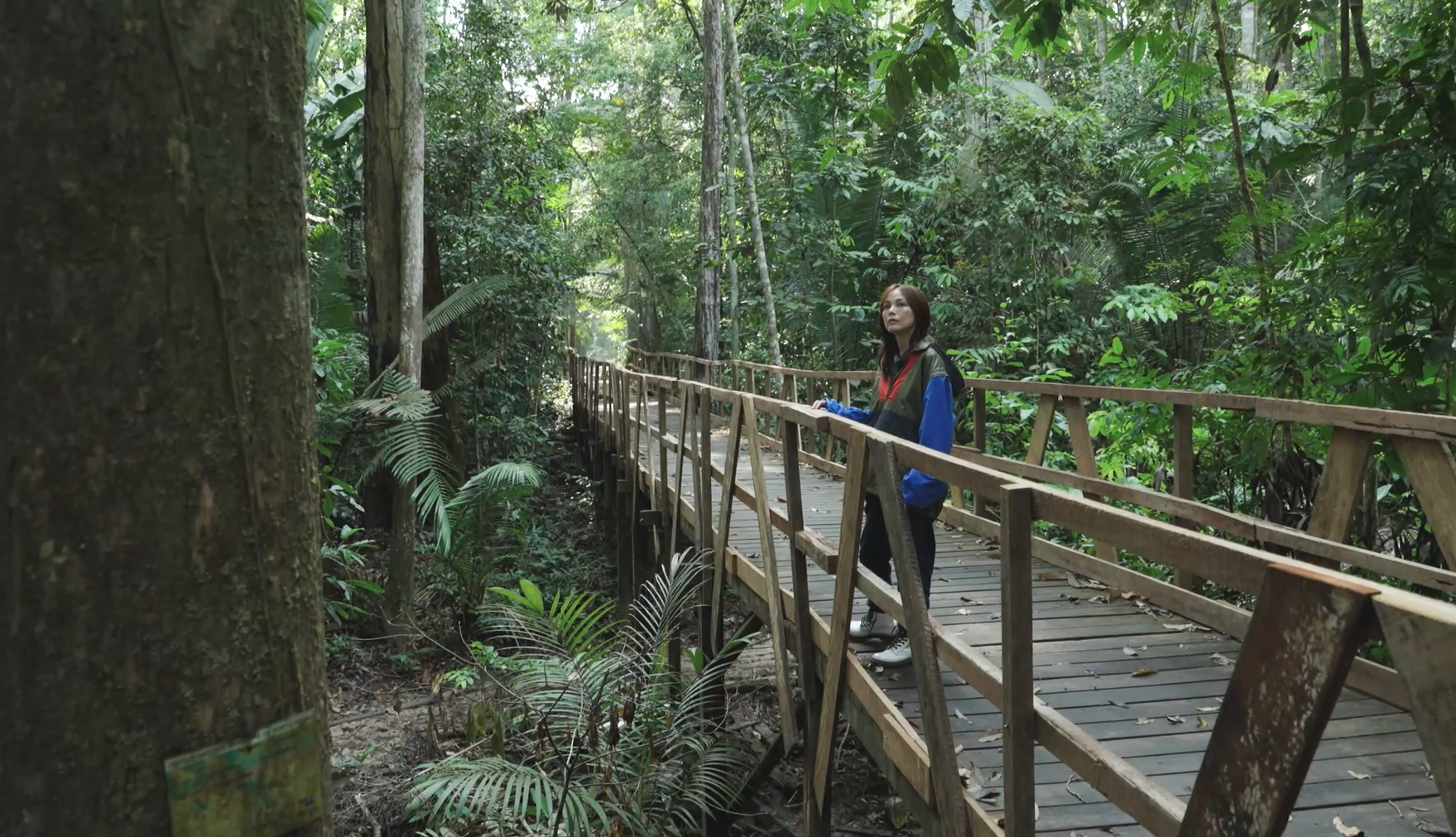
Aikawa Nanase steps into the Amazon rainforest.
The Amazon rainforest is now facing a severe crisis. In Brazil alone, about 410,000 square kilometers of forest were lost between 1990 and 2020—an area larger than all of Japan (about 380,000 square kilometers). Each year, it loses approximately 13,666 km² of forest.
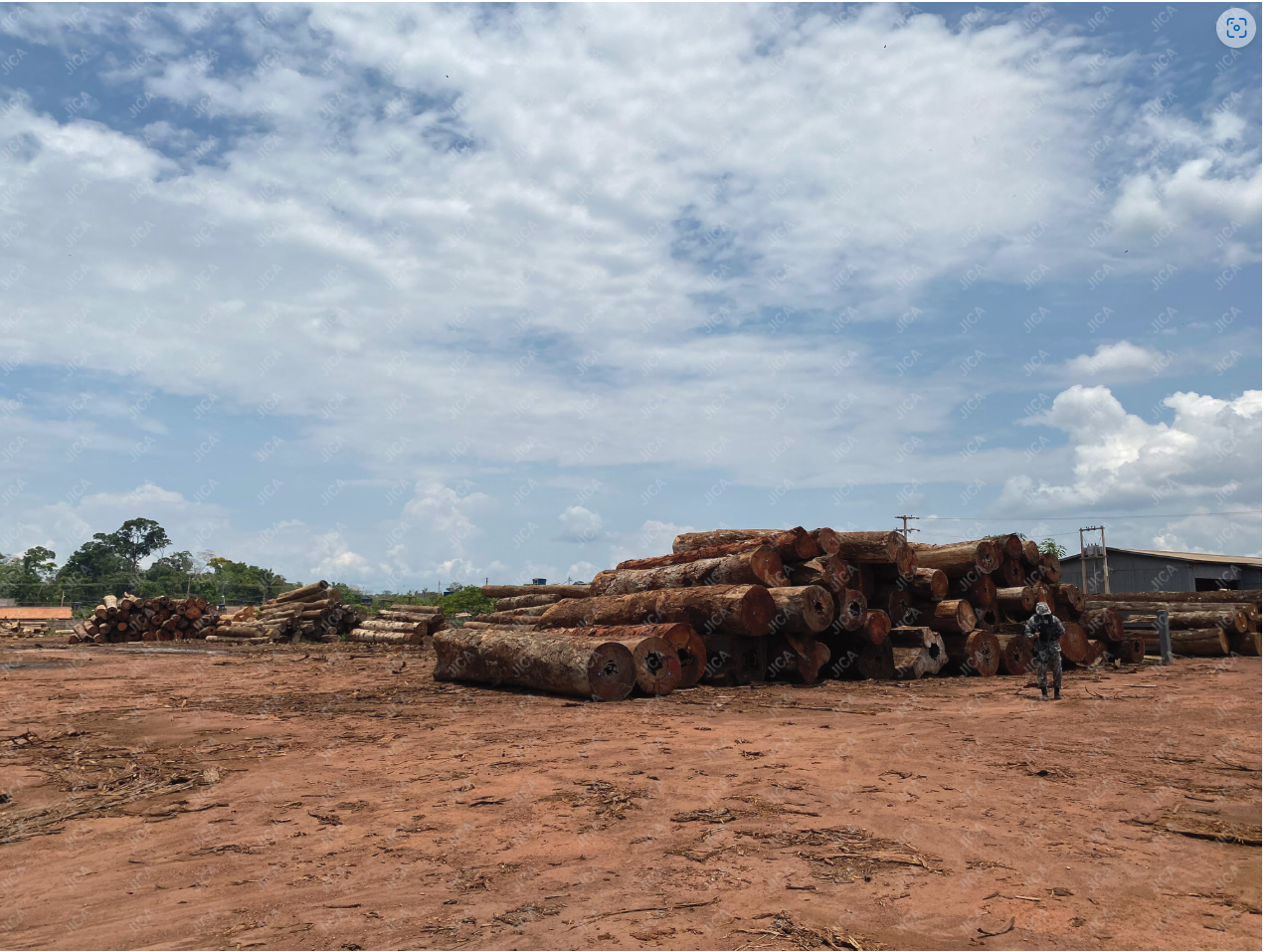
Illegally logged timber.
Aikawa visited Okonogi Hiroaki, chief advisor and environmental science expert dispatched by JICA, who works at IBAMA (Brazilian Institute of Environment and Renewable Natural Resources), a branch of the Brazilian Ministry of Environment, responsible for environmental enforcement, including actions against illegal logging and the protection of Brazil’s forests.
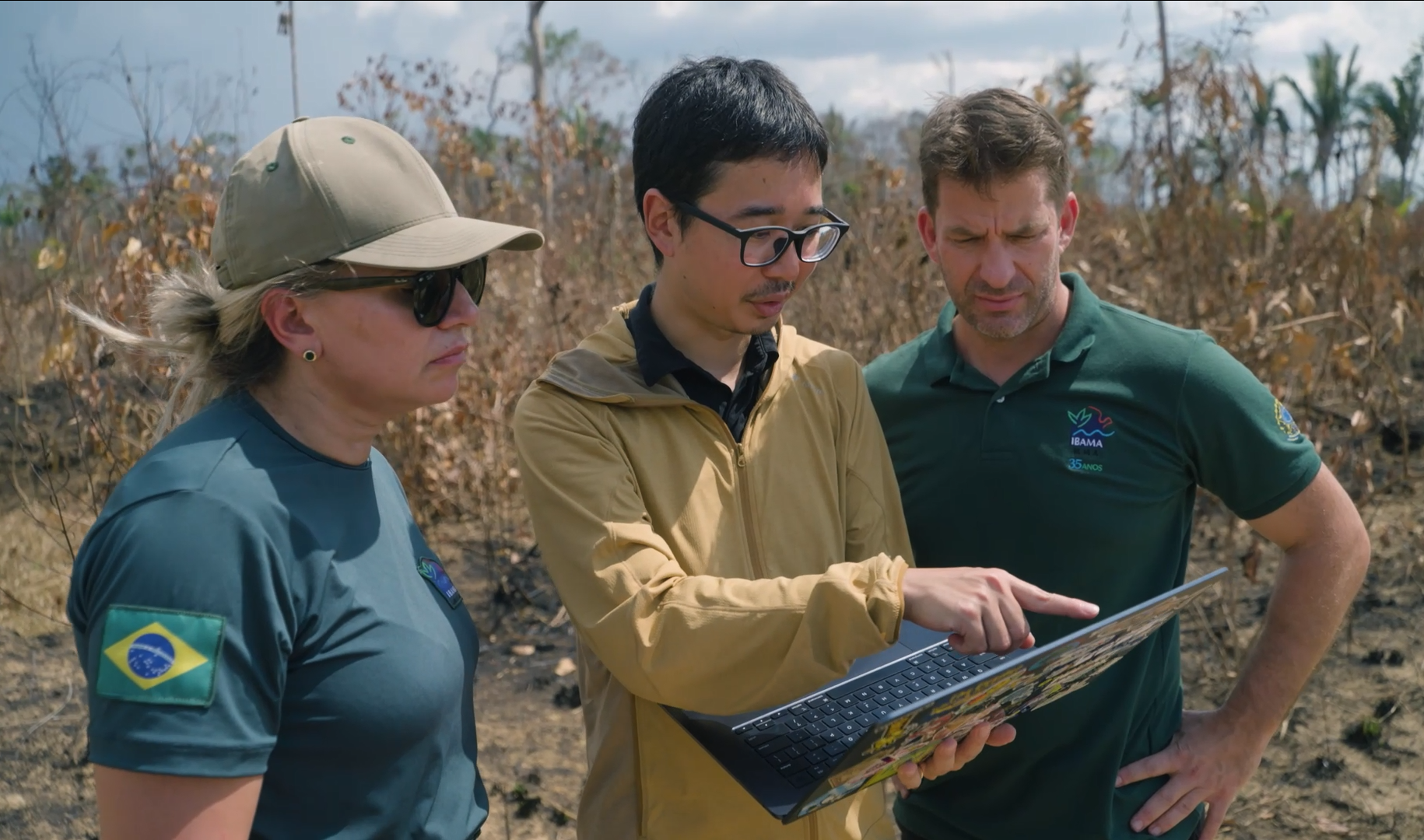
"Why does illegal deforestation happen?" Aikawa asked.
Okonogi cited two main reasons:
1.Extracting valuable timber, such as mahogany for luxury furniture.
2.Clearing land for agriculture or pasture.
"The soil in the Amazon loses nutrients within two to three years after being cleared for farmland or pasture. Unlike Japan, the deeper layers of soil have little nutrition. To keep using the land for pasture, you need to add fertilizer, but it's cheaper to just clear more forest," Okonogi explained.
Abandoned land does not return to forest. The Brazilian government is strengthening monitoring and crackdowns on illegal deforestation, but the Amazon is about 13 times the size of Japan, making comprehensive surveillance a challenge.
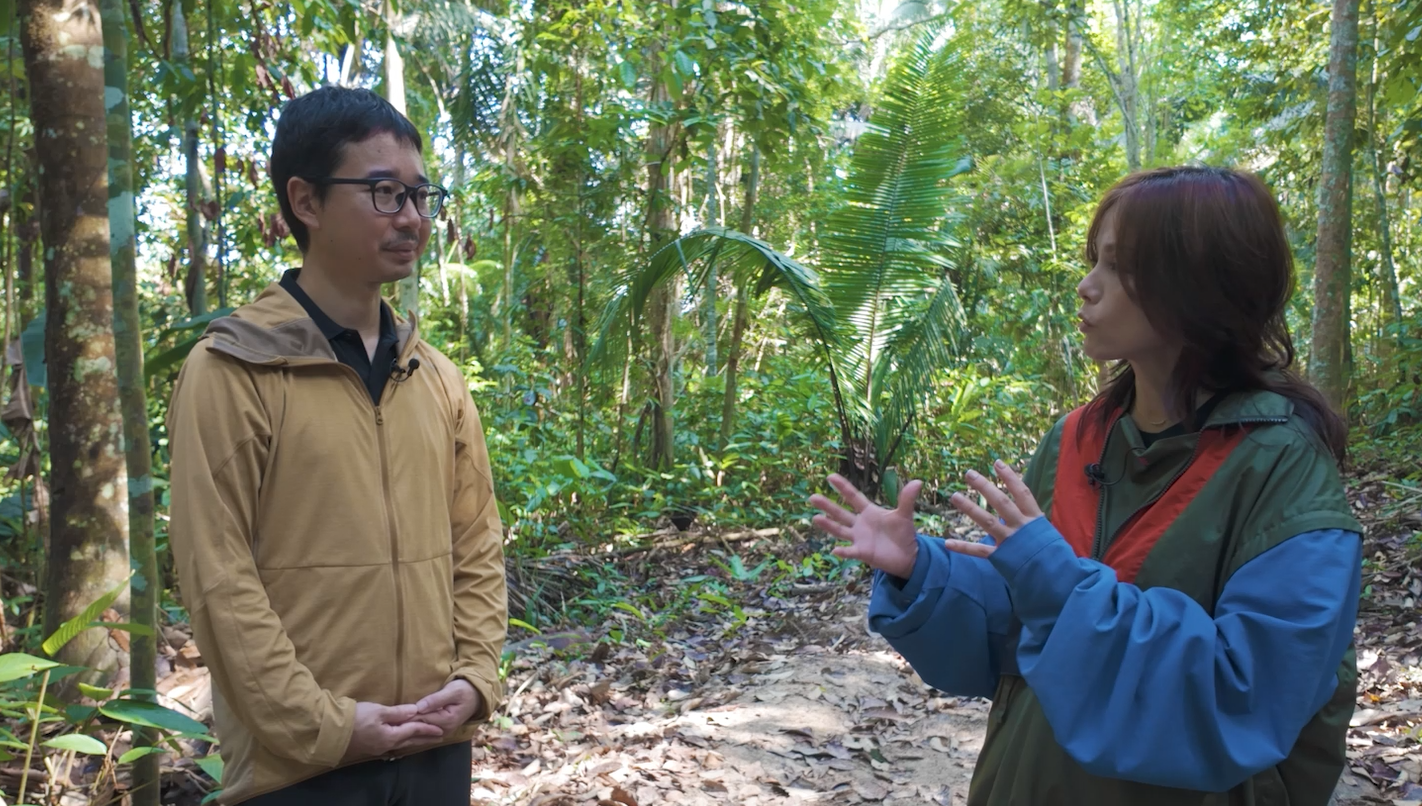
Aikawa speaks with Okonogi
Aikawa asked, "How can we protect such a vast land?"
Okonogi pointed to the sky.
"The answer is in space," he said.
Since 2009, JICA and IBAMA have run the " Utlization of ALOS Images to Support Protection of the Brazilian Amazon Forest and Combat against Illegal Deforestation " project using JAXA's "Daichi" Earth observation satellite. The project detects changes in the forest from satellite images and shares information with IBAMA and the federal police. Over three years, this effort helped halve the number of illegal deforestation cases. cases.
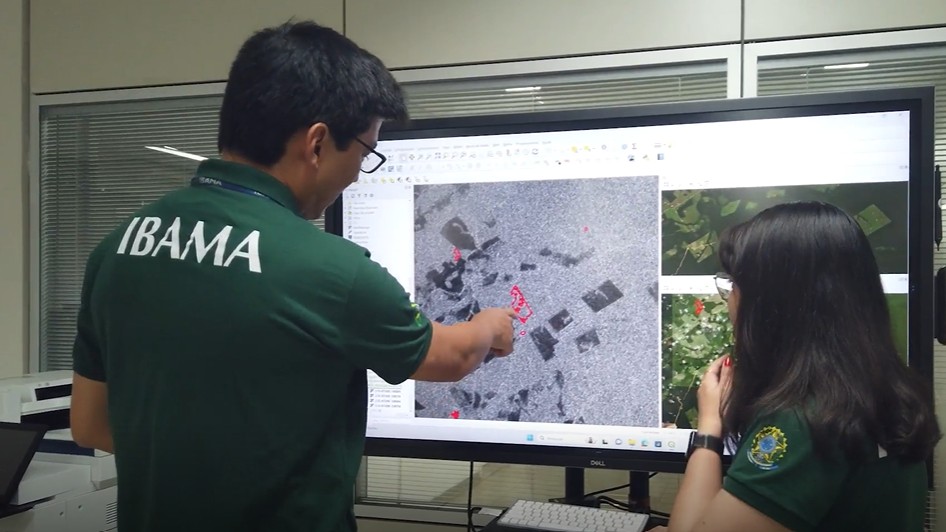
IBAMA staff analyze satellite imagery.
Since 2021, the " Project for improving control of illegal deforestation through advanced SAR and AI technologies in the Brazilian Amazon" " has used the more advanced Daichi-2 satellite. Cutting-edge AI now pinpoints areas at risk of deforestation.
Aikawa asked to see a patrol in action and joined IBAMA staff in the field.
Aikawa rode through a landscape of gray, scorched earth, with only charred shrubs remaining and smoke still rising in the distance. This was the site of a forest fire two weeks earlier.
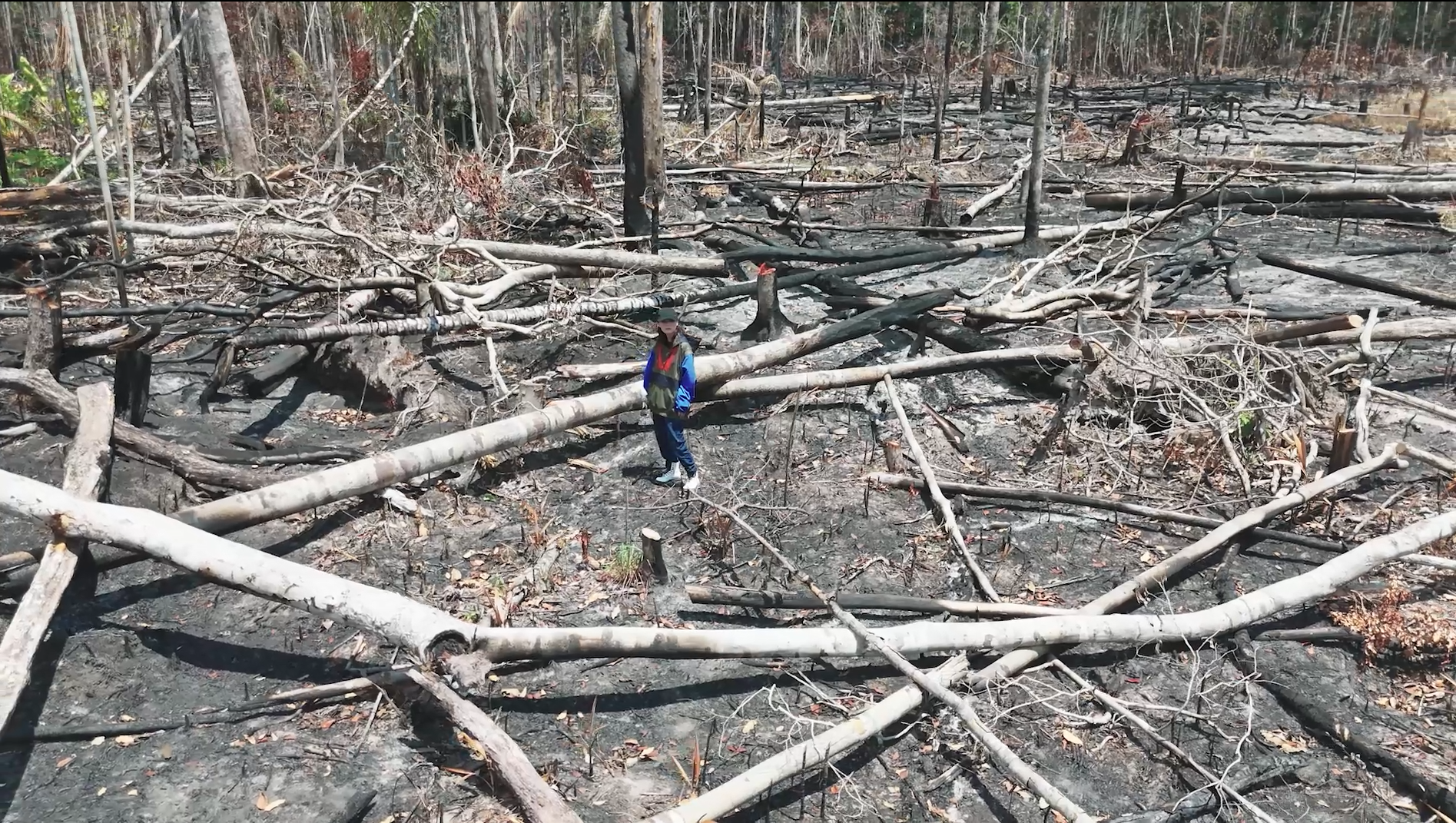
Aikawa stands in the ashen aftermath of a forest fire.
In recent years, forest fires have become more frequent in the Amazon, driven by climate change and illegal deforestation. Both are major factors in the loss of rainforest.
Nara, an IBAMA staff member, explained, "The situation in the Amazon is very severe. But with satellite data, we can quickly respond to illegal logging and fires and stop fires before they spread. You can still see trees in the distance -- because we were able to put out the fire early. Satellite information is extremely helpful."
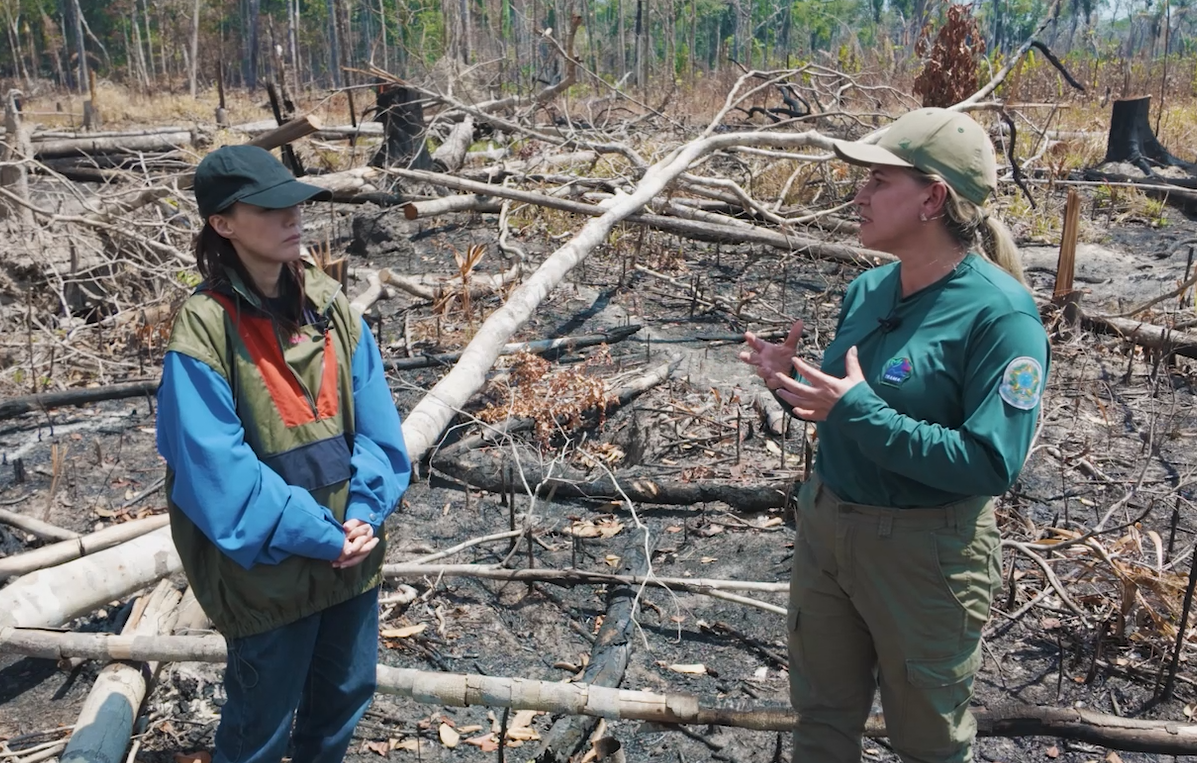
IBAMA staff member Nara speaks with Aikawa.
Nara also spoke about the importance of protecting the rainforest:
" By preserving nature, we ensure that future generations can grow up healthy and thrive in cleaner air. Protecting nature leads to a better society and a healthier planet. That's what motivates me in this work."
After her visit, Aikawa reflected, "For all of us living on Earth, the Amazon -- the 'lungs of the Earth' -- is an irreplaceable, shared treasure. Protecting it and passing it on to the next generation is vital. I hope more people will learn about the Amazon."
Learning about the current situation fosters imagination for the future and helps protect the planet.
That is Aikawa’s message.
scroll